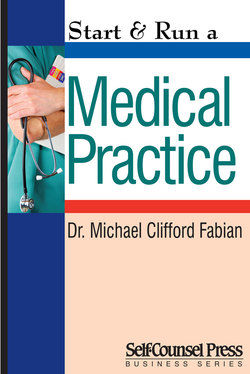Читать книгу Start & Run a Medical Practice - Michael Clifford Fabian - Страница 31
На сайте Литреса книга снята с продажи.
1.4b “O” — unconditional desire to help people despite the “outcome” of the patient
ОглавлениеImagine going into medicine thinking that you are always going to be able to make people better? This is often not the case. Picture yourself taking care of the medical needs of a family — a mom, a dad, and two children. The one child is nine years of age, doing well at school, an aspiring figure skater, and already thinking of doing some future humanitarian work at this young age. Very suddenly, the child starts having seizures, never having had a medical problem in the past. After all the necessary investigations, an aggressive brain tumor is diagnosed. This is obviously devastating for all. Despite having all the latest treatments available, including advanced surgery, the child deteriorates, and ultimately dies. Although you can be certain you tried your best, including acquiring the help of colleagues, you have no control of the final outcome — something you have to be aware of, and be able to deal with.
Another patient of yours, a healthy middle-aged man, has elective surgery on his sinuses. During the anesthetic, there is a significant complication as a result of the patient’s previously undetected raised blood pressure. His past blood pressure readings appeared to be within normal limits. As a result, under anesthetic he is given medication to lower the blood pressure. This results in a chain of events, ultimately causing a stroke. The patient wakes up with significant impairments, including memory loss and some long-term consequences. Who would have thought that this would have happened to one of your patients? This is certainly an outcome no doctor would have wanted.
